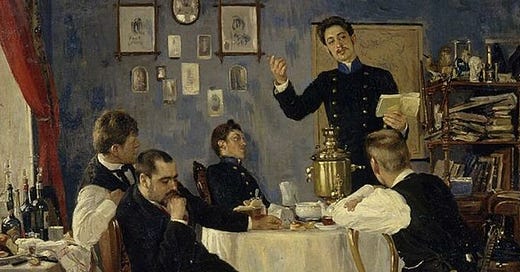CS Lewis explains that there are four different kinds of love. Affection, Eros, Friendship and Charity. The love which I will speak about today is the kind of love that is foundation of all the others: affection. Affection is the love that we have for other people and even animals, just because they are near us. It is the least discriminatory of the loves. It does not want something sensual like eros does, and it is not contingent upon shared interests and values like friendship is. It does not have an end like charity does. Affection is the kind of love you have for the stray cat that you might feed now and then, it is the kind of love you have for the bus driver you see every day, it is the kind of love, in short, that you have for your neighbour. It ignores barriers of age, sex, intelligence, interest, even species. A dog may love a cat through affection. A man may love a horse. An intelligent young scholar may love an old maid who is a nurse.
People seem to forget all about affection on social media, as they constantly discuss the “sexual marketplace” or “hustle culture”. People are only valuable in so far as they can bring us money or sex or status. But living in the real world teaches us that people are valuable for much more than this, and the way that we really behave in the world reveals that we are capable of much greater loves, greater particularly because they are not so utilitarian or transactional.
On social media, we can be highly selective to the extreme about the kind of people we want to talk to and the kind of people we want to avoid. We can curate a highly specialised social circle. This would not be so consequential except for the fact that, increasingly, people are isolated from human relationships in the real world, and are more and more dependant upon these online, curated, “friendships”. This leaves little space in people’s lives for affection because there are essentially no people that one loves just because we see them very often.
“Growing fond of old so and so, at first, simply because he happens to be there, I presently begin to see that there is ‘something in him’ after all. The moment when one first says, really meaning it, that though he is not ‘my sort of man’ he is a very good man ‘in his own way’ is one of liberation. It does not feel like that; we may feel only tolerant and indulgent. But really we have crossed a frontier. That ‘in his own way’ means that we are getting beyond our own idiosyncrasies, that we are learning to appreciate goodness or intelligence in themselves, not merely goodness or intelligence flavoured and served to suit our own plate.” CS Lewis
What could be the benefit of such a love? Affection is the kind of love that prevents extremism and foments the greatest amount of powerful empathy and humanity in people. Affection is a beautiful and serendipitous love that does not discriminate when it loves. It is the kind of love that allows us to see the humanity in all people. We may disagree with the secretary we say hello to every day on 50 different opinions, but seeing her every day, getting to know her life bit by bit, allows us to fall in love with her for no logical reason at all. If she were to suddenly disappear, we would definitely feel a strange kind of sadness that is difficult to express, because she wasn’t really a “friend” but she was something.
However, when we curate all our relationships, when they are a hyper specialised group with niche interests, our ideas become increasingly extreme, and we become less hospitable to other points of view. Even if we are set in our opinions, being exposed to different people whom we might not have chosen ourselves to spend time with, the people who hold these different opinions, can remind us of the humanity of those we disagree with.
“Affection opens our eyes to goodness we could not have seen, or should not have appreciated without it.” CS Lewis




